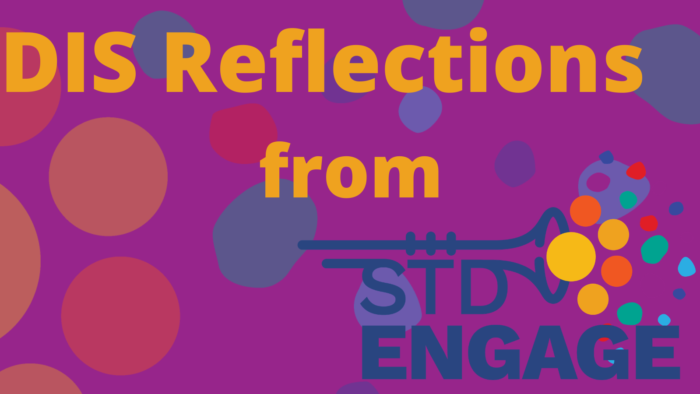DIS Reflections from STD Engage 2020 – Sherry Akhimie, Georgia
A blog featuring Sherry Akhimie a DIS from the Georgia Department of Public Health. Sherry was one of the DIS Engage scholarship winners from STD Engage 2020.

What did you enjoy most about STD Engage?
I thoroughly enjoyed the engaging (with a slight twist of humor) “STD Smackdown: Virtual Partner Services Versus in Person Connections-Will We Ever Return to the Past?” which was presented on Day 3. Both methods of reaching out to our clients have both their pros and cons. On one hand, it is easy to say that technology is the way to go. Contacting patients by means of telephone calls, text messaging and messages sent through messaging services is most effective. But we must not forget our population of “not so savvy” tech users. Everyone may not have capable devices to communicate in this manner or they may not have access to the internet. The important thing is to listen to each client. In some areas or demographic groups, one form of communication may be more acceptable than others. Reflecting on the “LOVER” method (Listen, Observe, Verify, Evaluate and Respond) can help to keep us grounded in our approach.
What’s something you learned at STD Engage that you plan to put into practice in your work?
Though many topics were very informative, I really appreciated the workshop “Enhancing DIS Motivational Interviewing: COVID-19 and STDs” that was presented on Day 1. Dealing with STDs daily, one may find themselves in a routine when conversing with clients. Though we may know there is life beyond diagnosis and treatment, our clients may not warm up to that fact as quickly. It’s important to take some time to step back and re-evaluate one’s interview skills. This touches back on the “LOVER” method. A subtle reminder to listen to what the client is expressing, observe their demeanor/body language, verify/validate what they are saying, evaluate their situation for the best outcome, and respond in a manner that is helpful and respectful. This is all valuable in making oneself an assertive and friendly, yet not passive, DIS. With the many changes/challenges that DIS have encountered due to our current pandemic, it is wise to re-evaluate one’s approach to conducting interviews/partner services.
In light of your work experience and what you learned at STD Engage, what do you think are the biggest challenges faced by DIS?
I think a big challenge that DIS face are patients not wanting to participate in any aspect of partner services. I believe that sex is a casual act for many people and that they may not be aware of precautions that can best protect them or the consequences that can occur. Though this is not a new challenge, serving as a DIS during these unprecedented times has made it a bit more difficult. When attempting to acquire personal data, including sexual preferences and partner details, it can prove challenging to convey a sense of empathy and confidentiality over the phone. I believe having that initial face to face interaction helps to build a level of trust between DIS and patient that can be lost through the use of telephones. This has made me aware of how to adjust my method in obtaining pertinent data and being able to have both patient and myself walk away from the conversation feeling valued, understood, and not exposed.
Meet Sherry
Sherry Akhimie is a Communicable Disease Specialist with the Department of Public Health serving District 2 located in Northeast Georgia. Prior to this role, she worked in Public Health for over 6 years serving as a Customer Service Representative linking patients to testing and care for various sexually transmitted infections. Sherry earned her undergraduate degree in Education which has proved invaluable in her current role in educating both patients and clinicians. In her spare time, Sherry enjoys traveling, spending time with family, and sewing.
Full list of NCSD and NACCHO DIS scholarship recipients here